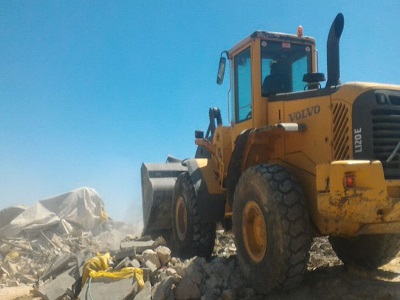
Israel Defense Minister, Avigdor Lieberman, will most likely decide the fate of the village of Susya in the southern Hebron Hills, denying villages their ancestral lands.
Israeli NGO, Rabbis for Human Rights (RHR), stated that an Israeli Supreme Court hearing on Monday aimed to decide whether it will accept Israel’s decision to immediately and without prior notice demolish 40 percent of the occupied West Bank village where approximately 100 people live.
Two weeks ago, Israeli authorities abruptly halted months of dialog with Susya’s residents, who had appealed to the court, with the support of RHR, about the possibility of legalizing the village.
Fate of Hebron Hills village likely to be decided by Israeli defense minister #Susiyahttps://t.co/SIjHizQZtY pic.twitter.com/xakmzOznti
— Ma'an News Agency (@MaanNewsAgency) August 1, 2016
Residents were told that any future agreement on the legality of the village would now be the responsibility of Lieberman who would make his position public in two weeks’ time.
During the hearing Israel Supreme Court President, Miriam Naor, expressed her frustration, stating, “The state’s position is not clear. I have difficulty with the fact that the state comes to court with one file after another and says we haven’t decided.”
Since Israel’s Civil Administration declared the village land an “archaeological site” in 1986, its Palestinian residents have been expelled from their homes several times, relocating to caves, tents, and temporary wooden shelters in the area, according to B’Tselem.
Suspension of dialogue between Susya and state leads to new fears of demolitions – Rabbis for Human Rights https://t.co/RYE0BJOJME
— Ofer Neiman (@ofer_n) July 27, 2016
While Israeli authorities have routinely declared that Susya’s residents lack the appropriate permits to reside there, villagers say authorities have for years denied their right to build.
This was despite the fact that “residents have raised large amounts of money, hired experts, and submitted outline plans to the army, all which, along with years-long attempts to obtain building permits have been rejected by Israel,” according to RHR.
RHR and B’Tselem have criticized the Civil Administration’s rejection as discriminatory, noting that numerous illegal Israeli outposts and settlements in the occupied West Bank fail to meet the same criteria, but do not face demolitions.
Susya residents and RHR have been able to prove the village inhabitants’ ties to the land with land documents dating back to the Ottoman era.
(PC, MA’AN)





